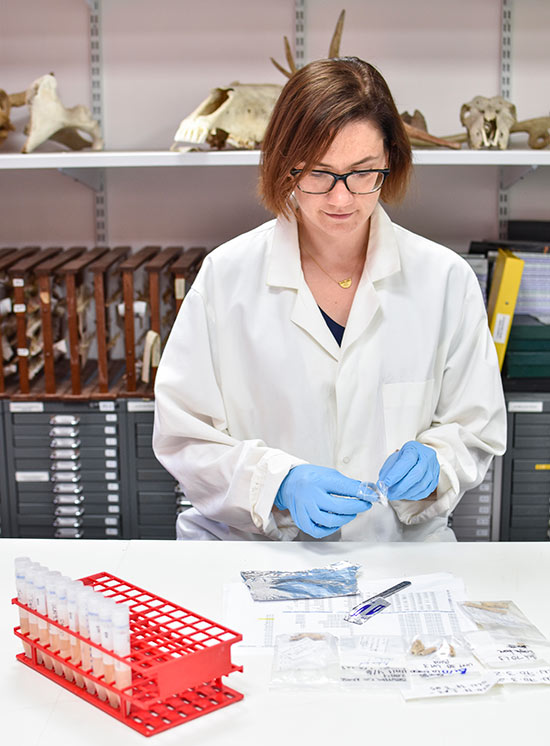Digging deeper into Neolithic diet in Britain
Posted on Tuesday 9 May 2023

The data generated will contribute to longstanding debates surrounding marine and freshwater resource consumption and exploitation within the British Neolithic.
Debates as to the nature of Neolithic diets in Britain have been ongoing for over 20 years. The suggestion from bulk δ13C and δ15N stable isotope analysis of human bone collagen that British Early Neolithic diets were dominated by terrestrial resources with little or no marine protein input – interpreted as a major change from Mesolithic hunter-gatherer-fishers – has given rise to theories that early Neolithic individuals were actively engaged in the avoidance of marine resources.
As such, it has been suggested that fish and other marine foods may have been seen as ‘taboo’, which in turn could be a reflection of new world views or beliefs. New isotopic methodologies now provide the resolution to be able to test these theories of food avoidance, and will provide a more detailed insight into the diets of Early Neolithic communities.
The research will be undertaken within the BioArCh facility within the Department of Archaeology at York.
